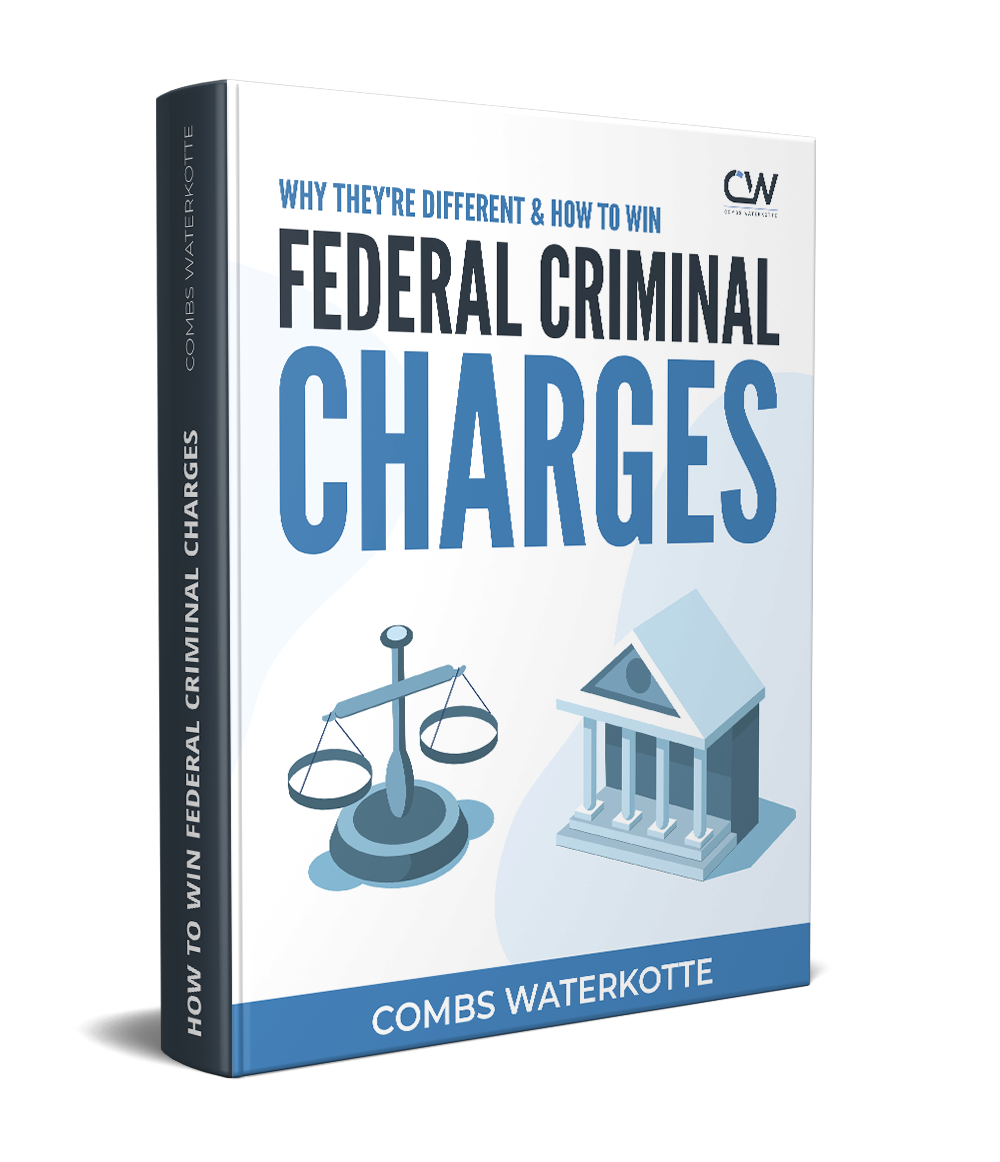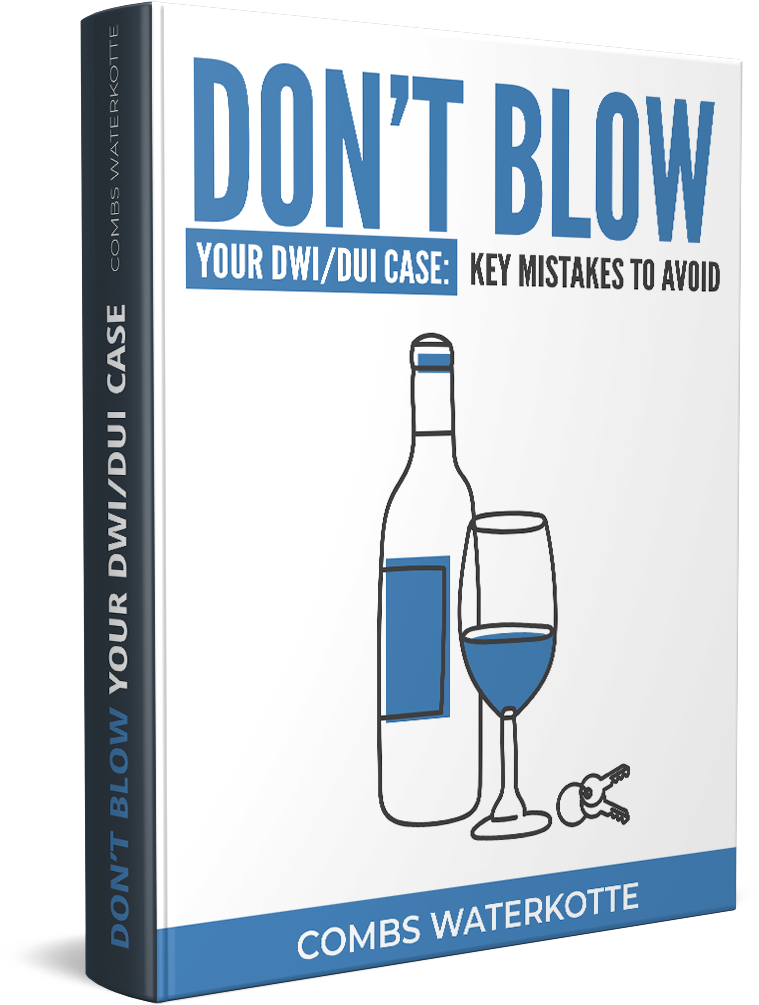Federal Jurisdiction Over Bank Robberies
As you might expect, bank robbery falls under state law like other types of theft or robberies.
Missouri state prosecutors can pursue charges for stealing or robbery against someone accused of robbing a bank. These felony charges can result in a lengthy prison sentence upon conviction, depending on many factors, including how much was stolen and whether a weapon or firearm was used.
However, bank robbery is also a federal offense. Normally, states have jurisdiction over crimes under their inherent police powers to maintain order within their communities. The federal government has limited jurisdiction over crimes, covering only offenses that either affect interstate commerce or an important national interest.
Bank robberies impact both. Banks facilitate financial transactions and are central to interstate and international commerce.
Moreover, deposits at banks and savings and loans are insured by the Federal Deposit Insurance Corporation (FDIC). Similarly, the deposits at credit unions are insured by the National Credit Union Administration (NCUA).
The federal government reimburses these financial institutions after a robbery to ensure that they have enough money on hand to cover customer deposits.
Federal Bank Robbery Statute
The federal bank robbery statute (18 U.S. Code § 2113) covers more than armed robbery. It extends to the following acts when directed against federally insured financial institutions:
Federal Bank Robbery
The standard definition of robbery is a theft that’s attempted or accomplished using violence or threats. The federal law follows this definition by prohibiting anyone from taking property or money from a bank, credit union, or savings and loan using any of the following:
- Force and violence
- Intimidation
- Extortion
“Intimidation” can be interpreted to mean any threat of force or violence against a person. For example, a bank robber would satisfy the intimidation element if they told the bank manager they would start shooting customers unless they handed over money.
Extortion covers non-violent threats, such as releasing or erasing the bank's records. Since the law includes the word “extortion,” a ransomware attack threatening to destroy a bank’s computer system could qualify as bank robbery.
Federal Bank Burglary
Contrary to popular belief, burglary does not require theft. Rather, burglary occurs when someone unlawfully enters another person’s property with the intention to commit a felony. Thus, breaking into someone’s home to commit sexual assault would qualify as burglary.
The federal statute includes bank burglary. This offense happens when someone enters a building used as a bank, credit union, or savings and loan to commit larceny or any federal felony that affects the financial institution.
Breaking into a bank to steal cash would qualify as burglary. However, breaking into a bank to falsify records to cover up embezzlement might also qualify.
Federal Bank Theft
Theft occurs when someone takes another person’s or entity’s property with the intent to deprive them of its possession. Missouri’s theft statute covers all types of unlawful takings, including fraud, retail theft (more commonly called “shoplifting”), and embezzlement.
Like Missouri, the U.S. government defines bank theft broadly to include any taking and carrying away of property or money in the care, custody, or control of a bank.
Under this definition, using a stolen identity to withdraw money would qualify as bank theft. Similarly, entering a vault lawfully to access your safe deposit box might turn into bank theft if you unlawfully take the contents from someone else’s box.
Notably, the theft laws apply to all bank property, even if it isn’t inside the bank building. Theft from an armored truck or off-site ATM could therefore qualify as bank theft depending on when and where it occurred. If the money was still in the bank’s possession or custody, the perpetrator may commit bank theft regardless of its location.
For example, breaking into an ATM at a grocery store qualifies as a bank robbery. However, robbing a customer after they make an ATM withdrawal does not.
Receipt of Property Stolen From a Bank
Receiving property or money known to be stolen from a bank, credit union, or savings and loan is illegal. More specifically, the following acts involving stolen funds or property are prohibited:
- Receiving
- Possessing
- Concealing
- Storing
- Bartering
- Selling
- Disposing of
The term “knowing” is critical when interpreting this law. If a business launders money known to have been taken in a bank robbery, it might be charged with money laundering and receiving property stolen from a bank.
Assault, Homicide, or Kidnapping While Committing Bank Robbery
The law includes enhanced offenses when a perpetrator commits a violent crime during a bank robbery, burglary, or theft. The statute contains offenses that cover any homicide or kidnapping that occurs during a bank robbery, burglary, or theft. It also includes any assault with a dangerous weapon that happens during a bank robbery or burglary.
It’s worth noting that these offenses are broad enough to cover acts that occur in a related course of conduct. For example, if a person takes a hostage outside the bank while escaping, they might have committed kidnapping while committing a bank robbery.
Possible Defenses Against Federal Bank Robbery Charges
Your Missouri federal bank robber attorney can identify several criminal defense strategies that may apply to your case, depending on the alleged offense. For example, they might raise the following defenses:
Lack of Intent
Criminal offenses require intent. If you lack intent, the government can’t prove that you committed the crime in question.
For example, to support a charge of bank theft, the government must prove that you intended to take and carry away the bank’s property. Suppose that you found a bag of cash that fell from an armored truck and put it in your car to turn it in to the police. You likely didn’t commit theft because you intended to return the money, not to take it.
Alibi
An alibi highlights any facts that disprove your commission of an offense. For example, you might be arrested for bank robbery based on a general description from a teller and grainy security video. If you can prove you were across town at a dentist appointment at the time of the robbery, you would have an alibi.
No Knowledge
Some offenses require the government to prove your knowledge of certain facts. For instance, it’s only illegal to receive property from a bank theft if you knew it was stolen. If a bank robber were to use stolen money to pay their rent, their landlord wouldn’t commit an offense if they were unaware of the source of the funds.
Not a Federally Insured Institution
Since federal jurisdiction over criminal offenses is limited, you can overcome charges by showing that the act falls outside the government’s power.
For example, the bank robbery law only covers federally insured institutions. If you’re accused of embezzling cash from your employer’s deposits before they reach the bank, this offense would fall under state law rather than federal law.


































